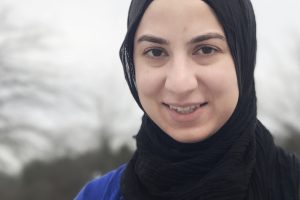
After earning her bachelor’s and master’s degrees in ChemBE in 2010 and a stint as a process engineer at Intel, Aasiyeh Zarafshar, ’10 BS/MS has returned to her chemical engineering roots as a process safety engineer at Micron Technology in Manassas, Virginia.
“I use all of those equations we learned freshman and sophomore year that you thought you would never use,” Zarafshar says. She relies on those chemical reactions daily while leading a team that conducts hazard studies on every piece of equipment in the sequential chain that produces memory chips, ensuring that all necessary safety features are in place.
Zarafshar first started cultivating her roots while building nanocubes in a ChemBE lab. She landed there at the beginning of her second semester, the day she received a serendipitous email from a faculty member seeking lab assistants just after being bumped from a sculpture class. “Everything I do, every day, is a continuation of what I started there,” she says.
It’s not just that her life has revolved around silicon wafers ever since. The approach to investigation—things like careful documentation and thorough lit searches—that she learned from her lab mentors sets her apart from colleagues with less research experience, she says. “The ability to drill into an idea; I do that a lot in my daily work now,” Zarafshar says.
Zarafshar says her role at Micron perfectly combines her love of research with the satisfaction she gets from creating tangible products. With its emphasis on practical skills and hands-on experience, undergrad research laid a powerful foundation for her.
A practicing Muslim, Zarafshar says she’s encountered a few preconceived notions in the world of industry about both women and Muslims, but works steadily to broaden horizons. At Intel, she served on the board of the Muslim employee group, conducting outreach and encouraging women in technological leadership.
“I like to think I’m slowly changing people’s minds by being competent at my job,” she says.